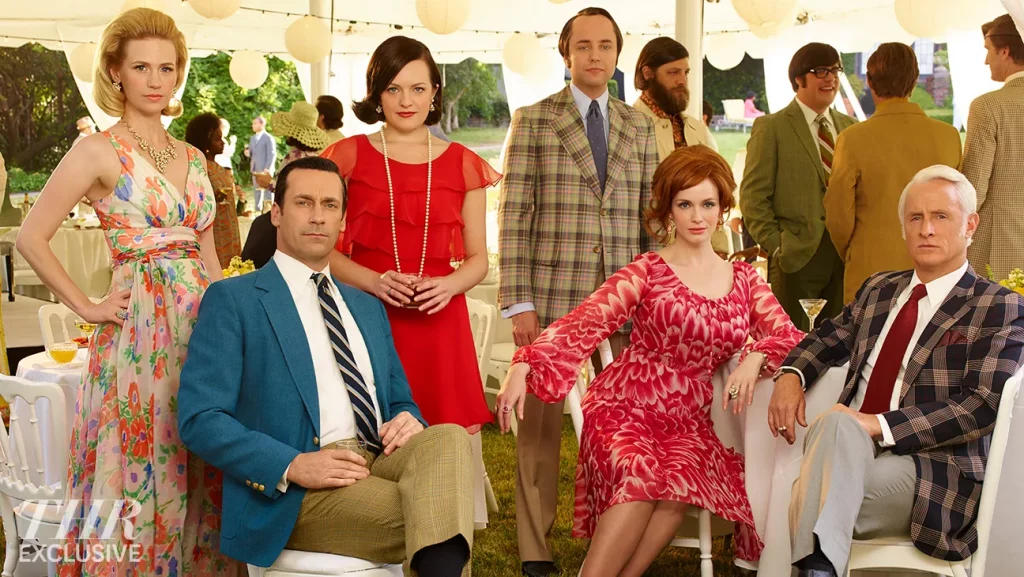What can advertising learn from Mad Men in 2024?

I just finished watching Mad Men for the third time. The first followed the initial annual-ish release of seasons, with the second and third times both inhaled all in one go, over a month or two.
Before I dive into some elements that might relate to the advertising industry in 2024, may I just make one thing clear: Mad Men is the best TV show in the history of the medium.
Over 92 episodes it is perfectly written, constructed, paced, acted, directed, photographed, designed and hairdressed. That’s over 4000 minutes of utter brilliance, something no Hollywood director ever achieved.
Sure, some of you are shaking your heads, muttering ‘Breaking Bad’, ‘The Sopranos’ and ‘Grange Hill’, but I’ve watched them all, and Mad Men is clearly the best.
(By the way, I wrote a post about the show back in May 2015. I had attended a Writer’s Guild event where the creators answered questions. It was fun.)
If you watched it when if first appeared, 10-15 years ago, you were probably struck by how little the business has fundamentally changed. Sure, we no longer drink or smoke that much, but the frustrations of client relationships, what to do when the CD presents their own work over that of their teams, and the CFO hanging himself in his office are situations we’ve all witnessed many, many times.
On this occasion I was struck by some of the ways in which it relates to today’s industry.
Towards the end of the show there’s a plotline about installing a computer in order to for the agency to appear more modern. The creatives are suspicious while others are concerned that it will take people’s jobs away. When it was written, around 2013, the current form of AI was a mere pipe dream, but now it’s been installed in every agency, making creatives suspicious and making others concerned that it will take people’s jobs away.
There’s also an interesting story where Peggy organises a stunt whereby two women are paid to pretend to fight over who gets to buy the last ham in the store. Look! It’s a preview of the experiential/stunt advertising which is now so prevalent. Don was not happy with this turn of events, as he felt it made the agency look cheap and sensationalist. He was right. In many instances he would also be right today.
Did they cover ‘purpose’? Kind of. Mad Men was set at a time when casual racism and sexism was not only a regular occurrence, it was also celebrated. Giving a crap about coral reefs or unrealistic body images was not on the cards. That said, when his agency lost Lucky Strike, Don wrote an open letter, published in the New York Times, setting out his new policy of declining tobacco accounts. It then bites him on the arse as other potential clients fear suffering the same treatment (a fate which did not befall AMV BBDO when it made an identical declaration). So perhaps Mad Men predicted the drive to purpose, and what seems to be the backlash that has followed. In the end, money always talks. Purpose was all well and good when it was the shortest path to an award, but juries now seem to be suffering from a degree of Mother Theresa fatigue.
One more big difference between then and now is the admission of fallibility. There are several moments where Don reminds clients that, when it comes to his work, there are no guarantees of success. That kind of self-aware ‘we’ll do our best’ is in stark contrast to the data-driven dross of today. Click-through rates, likes, followers and other meaningless KPIs now rule the industry, as if guarantees can be guaranteed. A return to the explicit admission that we are all taking a chance might not be a bad thing.
So I’ll repeat: it’s brilliant. Watch it again. There’s much to learn and much to entertain, and if it encourages you to keep a bottle of Smirnoff in the office, that’s fine by me.
It is UTTERLY brilliant Ben.
My third time too.
Sublime from start to finish.
One word.
“Carousel”.
I mean.
How good was that?!
So damn good.